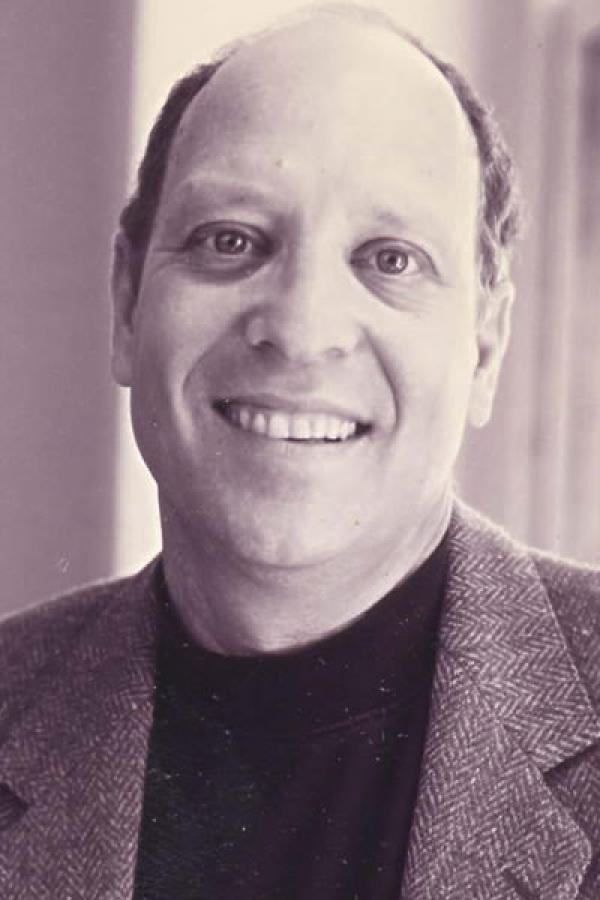Joshua Halberstam

Photo courtesy of Joshua Halberstam
Bio
Joshua Halberstam grew up in Brooklyn where both his grandparents were Chassidic Rebbes; his family traces unbroken generations of illustrious rabbis on both his father and mother's side back to the sixteenth century. After continuing his Talmudic studies in rabbinical school, Halberstam received his PhD in philosophy at New York University and had taught philosophy at Long Island Universty, New York University and Teachers College, Columbia University and currently teaches communication at Bronx Community College/ City University of New York. He has published books and articles in a wide range of subjects including philosophy, education, and Jewish studies. His most recent book, A Seat at the Table (Sourcebooks, 2009) is a novel that incorporates the author's translations of traditional Chassidic tales.
Translator's Statement
Storytelling has always been integral to Chassidism, the mystical movement that began in the early 18th century and swept across Eastern Europe Jewry over the following two centuries. These Chassidic legends were familiar to most of the estimated eleven million Jews for whom Yiddish was the primary language before the Holocaust. And they continue to be an essential feature of the religious life of contemporary Chassidim whose number, estimated at a quarter million, are the fastest growing segment of American and world Jewry. Unfortunately, for most Jews and non-Jews, the Chassidim remain an opaque, recondite, insular group about which they know little. These Chassidic tales provide one of the best ways to gain an understanding of this community and its traditions.
While Martin Buber (an outsider to this tradition) deserves credit for helping to introduce Chassidic legends to the modern, secular world, his "tales" are vignettes, didactic anecdotes, and not the robust narratives that more fully characterize the traditional Chassidic story. These stories will resonate with a larger English-speaking audience that is as yet unfamiliar with their rich sensibilities and universal appeal.
I grew up in this Yiddish-speaking Chassidic world where the references and rhythms that marked my daily calendar were delineated by the Chassidic almanac. But it was the stories that were the touchstone of my childhood fantasies and inspiration and continue to connect me to this rich tradition. My father, Rabbi Tovia Halberstam, recounted some of these tales in local Yiddish newspapers and more widely on his weekly Chassidic radio program. Few of these legends have ever been translated. So it is with a sense of deep personal fulfillment that I have undertaken to translate this heirloom.
I'm deeply grateful to the NEA for recognizing the value of this project and their support for this endeavor.
excerpt by Rabbi Tovia Halberstam
[translated from Yiddish]
But the wheel of fortune whirls to its own inscrutable rhythm, and with the tick of a spin, those who have become those who have not. During the past year, the market for Hertske's timber had abruptly dried up. The banks foreclosed on his properties. In less than six months, he was bankrupt. Nevertheless, he stoically endured his deepening destitution, for this was God's will, and he would assent to whatever fate bequeathed.
Hertske helped set the Passover table as always, determined to create what festive mood he could. Gone were the gleaming goblets, the fine china, and the splendid dishes. Gone, too, and most distressful of all, were the holiday guests. But Pesach was Pesach, and a Seder must be a Seder. He prepared the pillows for his chair, arranged the matzos and vegetables and began the ceremony.
He poured the first glass of wine and recited the Kiddush with his usual Chassidic rapture. Lifting the matzah, he read aloud the passage describing the bread of privation and prepared the second of the mandated four cups of wine. Here the Haggadah instructs the son to ask the father the ma'nishtana, the Four Questions. Hertske hesitated. He looked over to Pesel who'd been observing him from the onset of the service. Each saw the tears well in the other's eyes.
Hertske tried again: "...and now the son asks..."
Hertske could not go on. He collapsed in his chair, crushed by the weight of years of disappointment. "I can't continue," he sighed, rocking slowly in his seat.
"Father in heaven," he sobbed, letting the tears flow freely. "I'm sorry, but I can't continue with the Seder because I, your son, have a fifth question for you. I am now penniless. My poverty notwithstanding, I have done everything you have required for the Seder and have set as graceful a table as possible with the few coins at my disposal. But I cannot fulfill the part of the Seder that calls for the child to ask the Four Questions. Why won't you allow me to fulfill your commandment? Master of the Universe, where is the child I need to complete my Seder?" Pesel watched in astonishment as Hertske closed the Haggadah and put on his coat. "To the Rebbe," he said, answering her unspoken question. "I'll ask him my fifth question."
About Rabbi Tovia Halberstam
Rabbi Tovia Halberstam devoted his literary output to preserving the disappearing treasure of Chassidic tales. Born in a small shtetl in Galicia, Poland in 1912, he arrived permanently to the United States in the 1930's where his father became the first Chassidic Rebbe in Brooklyn. Although a scion of the leading Chassidic dynasties and himself a Chassidic Jew all his life, Rabbi Halberstam also had an abiding interest in Hebrew, Yiddish, and Western secular literature, a background that enriched the Chassidic stories he published in Yiddish venues and retold, for two decades, on his popular radio program Chassidim Derzeylin, on the Yiddish station, WEVD.

